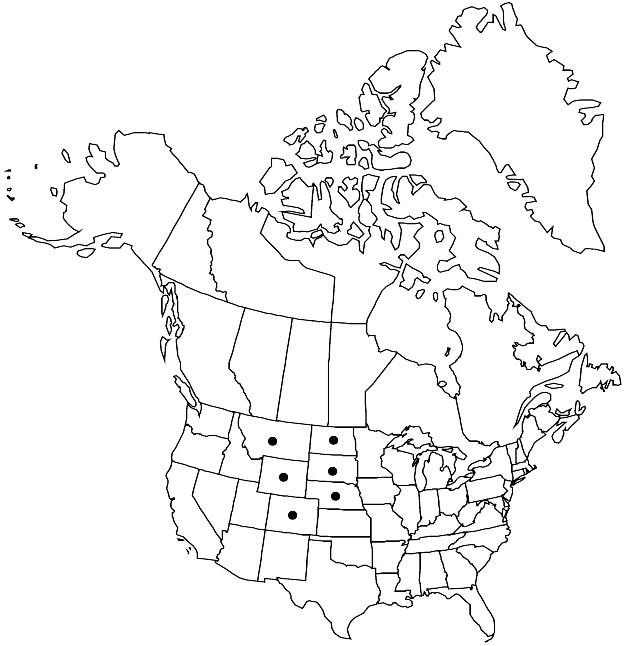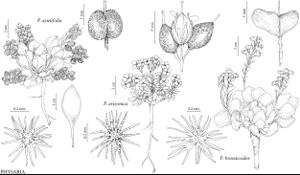Physaria brassicoides
Bull. Torrey Bot. Club 29: 237. 1902.
Perennials; (somewhat compact); caudex branched, (relatively large); (silvery) pubescent throughout, trichomes (sessile), several-rayed, rays furcate, (slightly umbonate, tuberculate throughout). Stems several from base, decumbent to ascending (arising laterally, unbranched, stout), (0.2–)0.5–1.7 dm. Basal leaves: (petiole somewhat winged); blades orbicular to obovate, 2–6 cm (width 1–2.5 cm, thick), margins usually repand, rarely entire, (adaxial surface scurfy). Cauline leaves: blade oblanceolate to broadly spatulate, 1–2 cm (width 3–5 mm), margins entire, (apex obtuse to subacute). Racemes moderately dense (or elongated). Fruiting pedicels (divergent, straight to somewhat curved or sigmoid), 5–12 mm. Flowers: sepals linear-oblong, 6–8 mm; petals spatulate, 9–12 mm. Fruits (erect), didymous, cordate, moderately inflated, (6–)10–20 × 10–23 mm, (papery, base obtuse or with obscure sinus, apical sinus deep, broad); valves (retaining seeds after dehiscence), densely and loosely pubescent, trichomes spreading; replum linear-oblong, constricted, as wide as or wider than fruit; ovules 4 per ovary; style 4–5(–9) mm. Seeds plump, (broad). 2n = 8, 16.
Phenology: Flowering May–Jun.
Habitat: Bare hillsides, dry gravel and clay soil, badlands, clay knolls, banks
Elevation: 900-1400 m
Distribution

Colo., Mont., Nebr., N.Dak., S.Dak., Wyo.
Discussion
Selected References
None.
